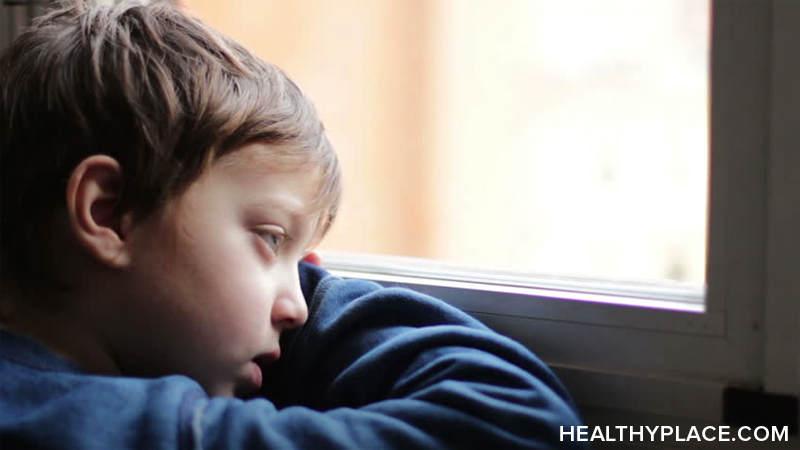Does Your Kid Need Child Counseling for Divorce When You Split?

Child counseling for divorce is a service that parents can use to help their children adjust to parental divorce. It’s available to anybody going through the turmoil created by the breakup of marriage and family. Divorce is difficult for many, if not all, children and adolescents. Does this mean that your kid automatically needs child counseling for the divorce? Not necessarily. There are times when kids can benefit greatly from a therapist’s help. In some cases, though, counseling isn’t needed and may even be detrimental.
It’s estimated that approximately 25 percent of children have prolonged emotional and behavior problems after their parents divorce (AAMFT, n.d.). Kids and teens may begin to struggle with emotions and behaviors during the divorce process. However, if these difficulties continue even after the new split family structure is established, the child would likely benefit from child therapy for divorce.
The question remains: How, as parents, do you know if your child’s reaction is typical or unusually problematic? Read on to explore the answer to this hard question.
When Is Child Counseling for Divorce Unnecessary?
It is normal and to be expected for kids and teens to react negatively to their parents’ divorce. Their lives have been turned upside down, and they’re not automatically equipped to handle it because of their age and developmental stage. Some become overly tearful, becoming upset and crying over seemingly small things (what is small to an adult, though, isn’t small to a child). Others become moody and sullen. Others still become irritable, even downright angry.
These reactions are some of the ways children process the end of their family as they know it. (That does sound a bit dramatic, but this is the way divorce is interpreted from the perspective of a child.) If your child is exhibiting emotions but isn’t excessively withdrawing or disruptively acting out, therapy may not be needed.
In some cases, sending a child to counseling for divorce may be harmful. Sending a kid or teen to a therapist could send the message that something is wrong with them. Another negative message is that you don’t believe in their ability to handle themselves or the situation.
That said, refraining from sending your child to a counselor when they are struggling with your divorce could aid their healing and ability to eventually settle into a new normal. There are signs you can watch for that indicate that your child can benefit from seeing a therapist ("What Can Family and Child Counseling Do for Your Family?").
When Does Child Therapy for Divorce Help?
If your child’s emotions or misbehavior is extreme, significantly disrupting home life or causing problems at school, therapy could be beneficial. Watch for these signs that your child or adolescent is struggling beyond what is typical for the situation.
- Separation anxiety from one or both parents
- Irrational fears
- Compulsive behavior
- Regression—acting younger than their age
- Noticeable personality change
- Problems with eating and/or sleeping
- Unexplained weight loss or gain
- Engaging in risky behaviors including, but not limited to, stealing, lying, and substance use
- Acting out
- Aggressive behaviors toward themselves or others
- Talking back, excessive rudeness
- Being manipulative
- Withdrawing from friends
- Difficulty getting along with peers
- Suddenly changing friend groups
- Apathy
- Prolonged sadness/depression
- Guilt
- Decreased self-esteem
- Drop in grades
- Difficulty Concentrating
- Unusual agitation or fidgetiness
Most children won’t exhibit all of these signs. Be aware of what your child is doing and feeling, and watch for signs that are new for them. Pay attention, too, to their intensity and degree of problems they cause in your family and elsewhere. When in doubt, consult with a therapist for a professional opinion on whether your kid needs child counseling for the divorce.
Counseling can be a needed relief for your child and everyone in your family ("What Can Family and Child Counseling Do for Your Family?"). Child therapists listen fully to children and help them develop a voice so they can communicate with you with words rather than by acting out or becoming emotional. In counseling, your child will begin to make sense of their emotions and receive help with behaviors that are getting them into trouble at home and school.
Perhaps the most important benefits that comes from child counseling for divorce is the reassurance that the divorce isn’t about them as well as the development of a helpful new perspective. These, in turn, will guide your child as they continue the important task of creating an independent identity. With help, kids and teens can continue this mission in a healthy way.
See Also:
APA Reference
Peterson, T.
(2019, August 21). Does Your Kid Need Child Counseling for Divorce When You Split?, HealthyPlace. Retrieved
on 2026, March 1 from https://www.healthyplace.com/parenting/divorce/does-your-kid-need-child-counseling-for-divorce-when-you-split

